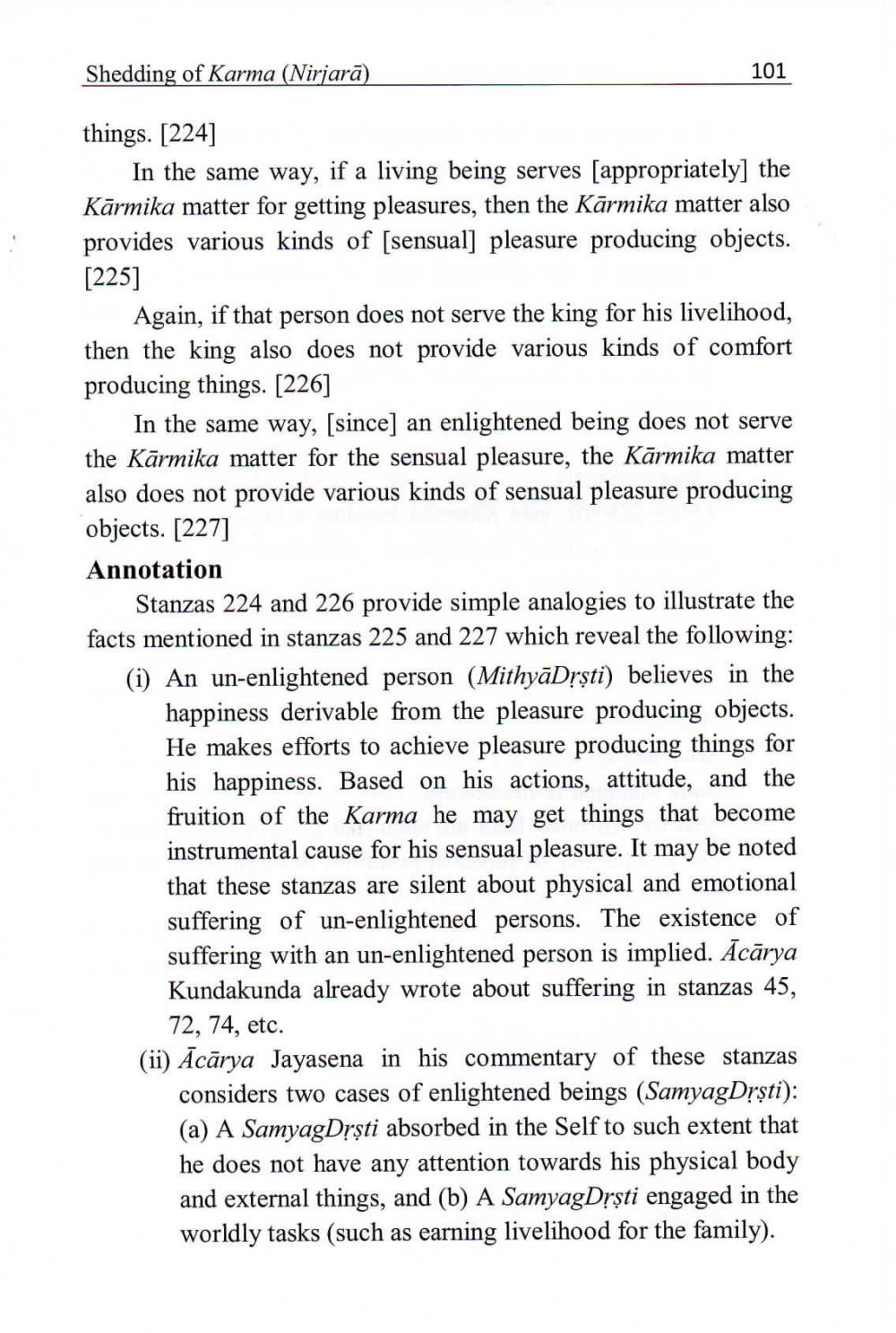________________
101
Shedding of Karma (Nirjarā)
things. [224]
In the same way, if a living being serves [appropriately] the Karmika matter for getting pleasures, then the Kärmika matter also provides various kinds of [sensual] pleasure producing objects. [225]
Again, if that person does not serve the king for his livelihood, then the king also does not provide various kinds of comfort producing things. [226]
In the same way, [since] an enlightened being does not serve the Kärmika matter for the sensual pleasure, the Karmika matter also does not provide various kinds of sensual pleasure producing objects. [227]
Annotation
Stanzas 224 and 226 provide simple analogies to illustrate the facts mentioned in stanzas 225 and 227 which reveal the following: (i) An un-enlightened person (MithyaDrști) believes in the happiness derivable from the pleasure producing objects. He makes efforts to achieve pleasure producing things for his happiness. Based on his actions, attitude, and the fruition of the Karma he may get things that become instrumental cause for his sensual pleasure. It may be noted that these stanzas are silent about physical and emotional suffering of un-enlightened persons. The existence of suffering with an un-enlightened person is implied. Acārya Kundakunda already wrote about suffering in stanzas 45, 72, 74, etc.
(ii) Acārya Jayasena in his commentary of these stanzas considers two cases of enlightened beings (SamyagDrști): (a) A SamyagDrşti absorbed in the Self to such extent that he does not have any attention towards his physical body and external things, and (b) A SamyagDrști engaged in the worldly tasks (such as earning livelihood for the family).




